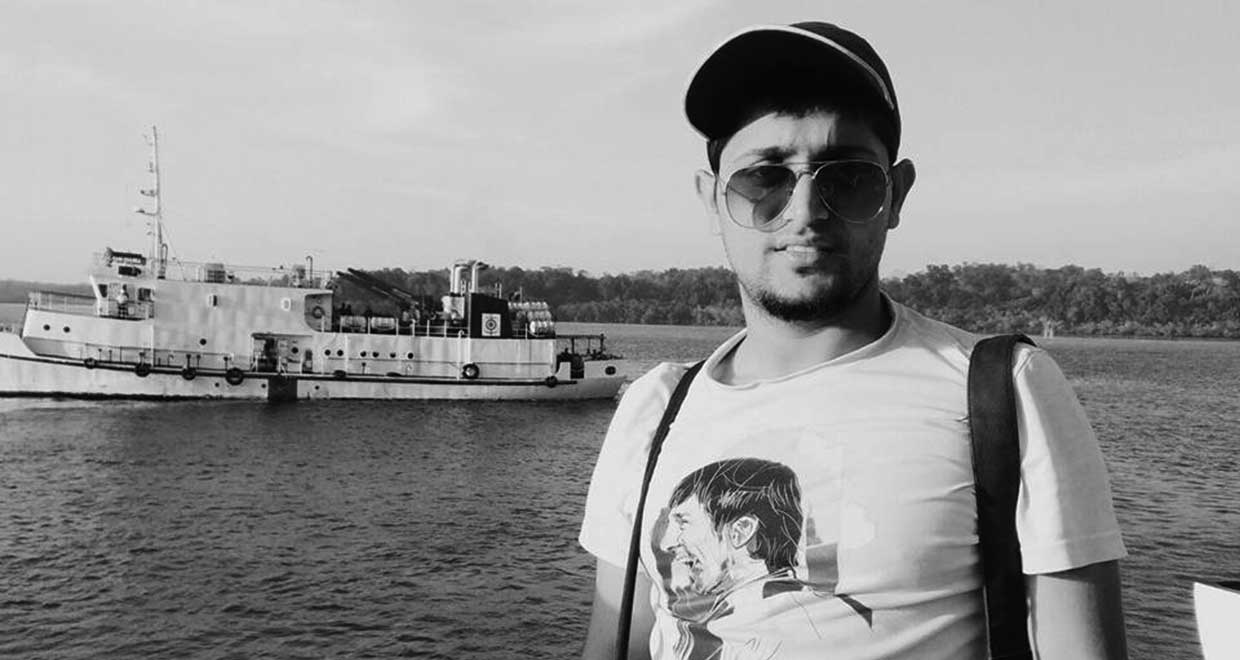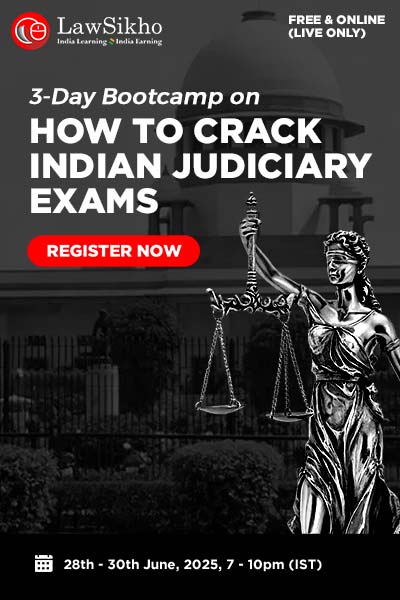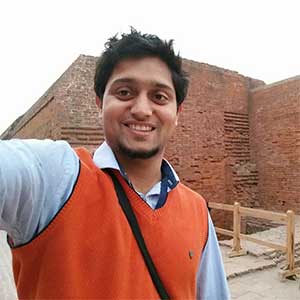Paramvir Singh graduated from National Law University, Delhi in 2013. After graduation, he appeared for the Union Public Service Commission Examination and secured an All India Rank of 619. He decided to appear again for this exam and in the year 2014, he was successfully ranked AIR 29 and he is currently undergoing his training period at the Lal Bahadur Shastri National Academy of Administration, Mussoorie. He will be soon joining the Punjab Cadre after the completion of the training.
In this interview, he talks about: –
- His experiences as a law student at the National Law University, Delhi.
- His strategy for the Preparation of this exam
- Advice to Prospective candidates of Civil Service Examination.
How would you like to introduce yourself to the readers? Please tell us a bit about your childhood and background.
I belong to a typical middle class family from Haryana which moved to city from a village only some 20 years back. My father and uncles are first generation graduates and lawyers who all moved to city breaking away from the traditional occupation of farming. Being unfamiliar with the city I received my primary and secondary education at very modest schools in the city, even though academically I performed decently throughout. At senior secondary level I opted for science with a view to get into one of the engineering institutions, blindly imitating others around me. However, the turn of events diverted my plans to take me where I am now stationed.
Why did you opt for the study of law? Did you find any legal professional in your family and friends?
I was least career conscious till my senior secondary level; neither had I understood the importance of choosing a career path nor did I put serious efforts to get into top engineering institutions, so at the end of my board exams I was directionless as to the path forward. My father, a lawyer, prodded me to write for law entrance exams which I found required much less time and sustained effort than the sitting for engineering entrance and took up the idea readily. Even though initially it was an accidental choice, as I went through the law school I really enjoyed the kind of environment and exposure it could provide for me.
What were your objectives and plans in the preliminary years of the law school?
I really had no elaborate plans or any particular expectations from the law school apart from a degree in law. I did not focus on any particular aspect like aiming for a brilliant CGPA or building a great CV, because I was not much aware of their value in the first place. This lack of focus towards my career path gave me the freedom to explore areas of my interest, and did not weigh me down with making career oriented choices such as choosing a particular kind of internship etc. My singular target was to focus on areas of learning where I lacked behind my peers due to differential and inadequate nature of my education in school. The maximum learning happened not because of the teachers or lectures but from influence of peers who represented diverse backgrounds and carried with them a diverse kind of learning, a little of which I was able to partake over the years in law school.
Did you focus only on the Academics in the college life? How did you excel in the Academics? How’s the Academic Pressure in NLU Delhi?
No, as I said there was no particular clarity in my mind on what I wanted to get out of law school, I tried to participate in as many things as possible like mooting, debating and even some research projects. In academics my performance was to my satisfaction and I was generally ranked in the top order. Academic pressure wasn’t all that much except with some courses where the professors sincerely put in effort and expected a good amount of self study from us; the others did not really demand much hard work and were engaged in only a formality of teaching.
What extra-curricular activities did you take part in that helped you in overall development?
I took part in many extra-curricular activities which presented to us in the law school such as mooting, some debating, legal courses in other universities, one research project for drafting a law, and a UNDP project. I did not have many publications to show for it, but I was able to learn a lot in terms of my legal acumen and drafting skills to be a successful lawyer if I chose to be.
What were your areas of interest while you were in Law School? And how did you go about developing expertise and knowledge in these areas?
As law is a very diverse field comprising of totally disparate kind of subjects, my focus was on gathering as much familiarity with these as the college could offer. The kind of subjects in which I developed more interest were dependent upon the ability of the teachers to make them more interesting and effort worthy. Some of the subjects I had more inclination to study because I found them more fundamental than others were Jurisprudence and Constitution.
Please tell us about the places you have interned at and if these were all planned. How is an internship helpful for a law student?
As for internships I was not able to do many and only worked for Delhi Legal Services Authority once. It was because of lack of focus as to what I wanted to do after graduation as also my liking to spend the limited time of vacations at my home. However, I think that internships are a great way for the students to see different work environments for themselves and also for many prospective employers to see their working firsthand.
Did you not get tempted by fancy corporate jobs?
My focus during law school was mainly on absorbing whatever learning I could, and had relegated career choices to the very end of law school. I actually was not much attracted by corporate jobs which I thought would not suit my temperament requiring similar kind of work being done over and over, however, to be fair to them I have actually not even interned in a corporate firm. But it was this impression which kept me away from them, as also my inclination not to run after money when I did not much for the kind of life I wanted.
When did you start preparing for the civil services? Did you start preparing for it when you were in college?
I had heard a lot of good things about civil services from my colleagues and the kind of opportunities it offered in terms of career. However, neither did I have any family member in the services nor any definite guidance, so I did not consider it seriously until the final year of the law school. With very haphazard information at my disposal, but other career paths seeming very tumultuous and long I decided to join a coaching, which was not difficult being in Delhi. The initial preparation was quite unplanned and a probe in the dark. However, after the notification of the exam, which had suddenly slashed the number of optional subjects to be taken to one, I became excited and prepared sincerely for the prelims with another friend to offer me company.
How did you start preparing for the Civil Services Exam? Do you think coaching is a prerequisite to crack this exam?
It was a very unplanned and unfocused preparation in the beginning where I was trying to read everything I could get my hands on and remotely related to the exam. In hindsight I think that only served me in good stead as I did not narrow down my focus too much on the syllabus and did not get bogged down by reading only what was being taught at the coaching institutions. I joined a coaching institute only after writing my prelims, and used it as a option to use for guidance whenever I needed any and for some writing practice. With the kind of pattern which is being followed recently Coaching has lost a good deal of relevance in cracking the exam, with focus required on understanding and being able to analyse the current events happening around us. It can be as well got from newspapers and internet and coaching institutes do not have monopoly over the reading material or expertise anymore.
Most coaching centres do not cater to the specific weaknesses or strengths of the individual student, which can only be understood and worked upon by the individual themselves
What was the routine you followed everyday throughout the course of your preparation?
My effort was towards being able to put minimum 6 hours of study everyday which changed from random readings initially to syllabus specific readings just before the exam. Not only reading, but being able to make adequate notes for remembrance and writing skills to reproduce it is equally important for the exam, so I focused on these 3 things.
What were your optional subjects?
There was but obvious choice of taking law as the optional subject when there was only one optional to be taken.
Do you think law students might have an edge while preparing for the UPSC exam?
Yes, especially because they are well adept through their study in law of filtering out and understanding the real issues involved in any question or problem. As also a student of law is generally familiar with lot of areas which overlap with the exam such as polity as also some familiarity with basic philosophical schools etc which help in the ‘Ethics’ paper. ‘law’ as a optional has performed better than most, with around 6 people being with law optional in top 50 this year. I would definitely recommend it as a much accessible career option for the law students.
What was your study pattern, the mode of study (online, offline etc). Please mention some of the books you referred to and how did you go about preparing for each stage of the exam?
My main focus was to free myself of general distractions and to be able to devote at least 6 hours every day to study for the exam. The primary mode of study was through books and newspapers for which I made notes in my laptop. I also referred to some magazines such as Frontline etc which I read online or after printing. For the preliminaries and general studies it is difficult to give a book list as there is a choice of books on every topic, but NCERTs are a good starting point for almost all topics. As for the Law, I referred to Starke for International Law, Bangia for Contracts and Torts, Gaur for IPC, MP Singh for Contracts which were the major topics in Law optional.
What did you do to keep yourself motivated all the time during the course of preparation?
Even though my focus on the exam, but I kept on doing a lot of other things to keep myself occupied as well as physically and mentally fit for the exam. I used to go cycling in the hills around my home everyday, would go for music classes and spend a lot of time in learning some new hobby or other everyday which allowed me to be focused on preparation without getting bored or distracted.
Could you please give some tips to those aspirants who are preparing for this exam? How should they go about preparing different subjects like general awareness, Optional paper of law?
While preparing a candidate should first have a detailed look at the past year question papers, to understand the mind of the UPSC examiners which can provide a direction in separation of chaff from grain while reading for it. Even though the questions are different every year but they point to a trend which can be helpful in deciding how to prepare. For Law as a optional subject the kind of questions are more or less similar every year which therefore should definitely be looked at.
Every year lakhs of people attempt this exam and only a thousand people get selected? Could you tell us in brief what are the skills required to crack prelims and mains exams?
According to me, there are basically three skills required for cracking the exam, reading skills—being able to sit continuously for extended period to read, analytical skills—ability to understand the crux of an issue from what you read and writing skills—being able to express yourself lucidly through your answer writing, which in combination with adequate hard work and dedication can make the person stand out from the hordes of people sitting for the exam every year.
How should a law student approach the interview for the Civil Services Exam?
For interview, there is no special approach or preparation which is desired. The interviewers are generally only looking for the confidence level and communication skills of the candidate which most of the law students are good at and thus interview is mostly the easiest part of the process for a law student.
What is your experience with the preparation that is required for the civil services? Undisputedly, it requires a huge mental strength and hard work.
More than anything else it requires a confidence in your ability and the dedication to put in the level of hard work required to achieve it, that is prerequisite for being successful in the exam. To plunge into preparation without adequate mental temperament can inturn be counterproductive.
You secured Rank 619 in the year 2013 and got through in your first attempt. Why did you decide to take drop of a year? What was your preference of services and why?
I was working in High Court as a litigation lawyer after taking my first attempt and work was very pleasing to my nature. When I did not get the choice of my service and being confident enough that I will make it to IAS the next year, I decided to not go through the unnecessary hassle of joining one service and leaving it when not inclined to continue in it.
What would be you message to the law students who want to pursue their carrier in the field of Civil Services?
The best advice I can give to the aspirants is that there is no set formula or strategy or a list of books/materials which can guarantee you success in the exam. There is a diverse set of very important factors such as your initial level of learning, your reading habits, your writing skills, your retention power, which should guide you in your strategy for preparing for the exam. Most coaching centres do not cater to the specific weaknesses or strengths of the individual student, which can only be understood and worked upon by the individual themselves. The differentiating element between successful and non-successful students is not the kind of coaching they took but their individual effort and their ability to understand their own weaknesses and strengths. I would also advice not to start the preparation too early, as in right after 12th standard. A candidate should use the initial years of graduation to build a solid base, so that the process of specific studies for the UPSC exam can be much smoother. I would also strongly recommend that preparation be done in a group of aspirants who can act as strong motivators to each other. It would relieve the stress of looking for best reading materials to a large extent as the discussion with other companions would sort out the best materials.
As a career option, civil services, from my limited experience of the field, has a lot to offer and especially IAS offers the diverse exposure which probably no other job can offer to fresher graduates right out of graduation. It offers a lot of autonomy and creativity in the working environment which much more than compensates for the lesser salaries on offer. The service calls for the best minds of the country to the deal with the complex issues facing it today and law students are particularly suited for it.
This interview was taken by: Shubham Gupta, III year, NLU Delhi




























